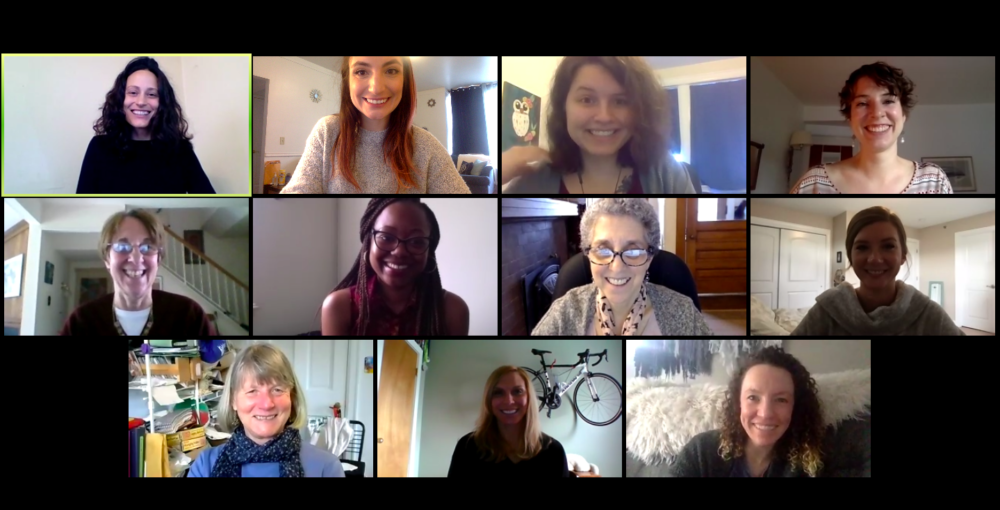The Buffalo 500 Women Scientists hosted a virtual science policy workshop in May 2020. As the COVID-19 pandemic took hold of the United States, we knew that the policy workshop we had been planning for 6 months would need to change. Our goal was to build the capacity of local scientists to influence the laws and policies that shape our community. We spent six months planning a full day, in person event, then quickly adapted to the public health distancing guidelines and instead hosted the event on Zoom. Over 50 registrants attended the virtual event. Results from surveys indicated that the workshop informed and empowered local scientists to become more involved in influencing policy. We now strive to help jumpstart a movement of similar workshops in cities, communities, and virtual networks across the nation. We wrote this guide to help you and your network, wherever you are, engage scientists in the policy-making process.
Organizing people and ideas
The Buffalo pod was formed in July 2019 by two graduate students and a postdoc who coalesced around the organization’s mission to serve society by making science open, inclusive, and accessible and to transform society by fighting racism, patriarchy, and oppressive social norms. Today, we are a grassroots network of 200+ scientists in Buffalo and Western New York.
The idea for the workshop came from an article about a science policy workshop organized by the Bozeman, MT pod of 500 Women Scientists. Using this as a starting point, casual conversations developed into a planning committee. Pod volunteers divided up tasks ranging from planning a meaningful agenda, securing healthy lunch options, and advertising the event. We had our first workshop planning meeting in February 2020 and our 10-12 volunteers continued to meet every 2 weeks to share updates and set objectives. Although only one person had policy experience, we were able to successfully tailor the event for a broad audience because our team had diversity in areas of expertise (e.g., technical acumen, design, knowing the local landscape) and experience (from graduate students to retired professors).
Tip:
- Divide the work according to your skills and availability.
Planning, pivoting, and going digital
One month before the event, we secured speakers and planned activities to promote learning and inspire engagement in policy. Once it became clear that the meeting could put participants at risk for COVID-19, we adapted our plans to host the event on Zoom, incurring no costs to the participants or our organization.
We spread the word about the online science policy workshop through our networks, social media, and in the local paper. Our agenda included a keynote speaker, who provided an overview of what science policy is, ways to get involved, and a Q&A. Next, a panel of scientists with lobbying experience discussed topics brought forth by a moderator. This discussion set the tone for smaller breakout sessions facilitated by our volunteers, where participants chose from topics such as community advocacy, building relationships with elected officials, and career paths in science policy. Although the shift to an online format was unexpected, we were able to host a successful and engaging experience.
Tips:
- Designate time during the workshop for attendees to submit questions for the speakers
- Intentionally foster a welcoming and safe environment in breakout sessions by setting time limits and establishing a judgement free zone. This improves the quality of the discussion by encouraging everyone to engage deeply.
Measuring our success and the next steps
We asked our attendees before and after the workshop to report how knowledgeable they were about how to influence policy and how confident they were that they could do it. A simple statistical test showed that our workshop increased their knowledge and confidence.
Our attendees reported that they would have wanted more than 20 minutes for the small group discussion. Most attendees reported the workshop length was just about right at 2 hours. In retrospect, we might add a 10-minute break after the speaker and panel discussion, then have a 45-minute small group discussion.
Tip:
- Develop a strategy to measure your success.
Our hope is that grassroots groups in small towns and big cities across the nation will adapt this strategy, build from it, and share what they have learned. We encourage a nationwide movement of science policy capacity-building events using this flexible “blueprint” as a starting point, building off of the efforts of the Bozeman, MT pod. More details about the workshop are posted on our website.
We think that now is the right time to build scientists’ capacity for influencing local policies. Scientists have a lot to contribute to their communities, the environment, promoting equity and justice, protecting health and safety, and other important aspects of public life. We hope you join us.

